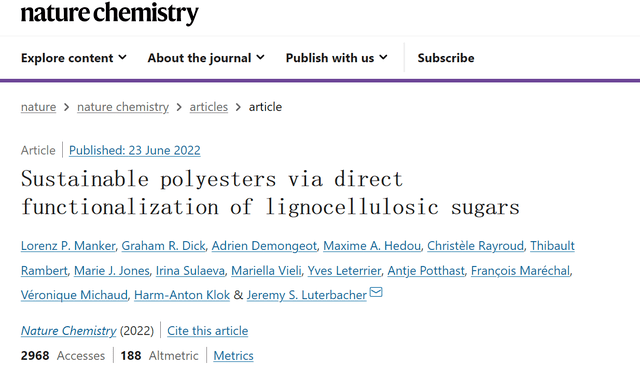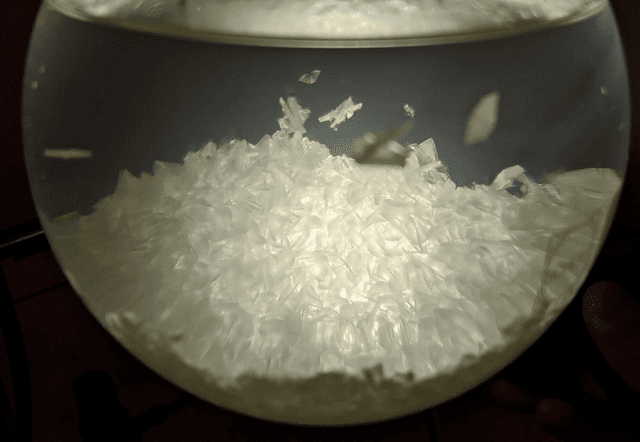Plastic is a resilient and versatile material, but it can be "more harm than good" for the natural environment. Scientists at the Ecole Polytechnique Fédérale de Lausanne (EPFL) have recently developed a new PET-based plastic material from waste plant matter that can be chemically recycled or degraded into environmentally friendly sugar.
The new material uses lignin, a biopolymer that makes up the cell walls of plants, as a precursor material. In previous work, the EPFL team developed a method to "cook" inedible plant materials, such as wood and bark, with inexpensive chemicals to extract lignin and produce plastic precursor materials.
In this new study, the researchers used a different chemical to create a more versatile bioplastic, and published their findings in the journal Nature Chemistry.

Lorenz Manker, the study's first author, said, "By using a different aldehyde, glyoxylic acid, instead of formaldehyde, we can simply sandwich 'sticky' groups on either side of the sugar molecule and then let them act as plastic building blocks. By using this simple technique, we were able to convert up to 25 percent of agricultural waste, or 95 percent of purified sugar, into plastic."
The resulting bioplastic is said to display many of the desirable properties that traditional plastics have. It can withstand temperatures up to 100°C, has a tensile strength of up to 77 MPa, a stiffness of up to 2,500 MPa, and forms a strong barrier to oxygen and water vapor. It also has a wide range of uses, and the research team demonstrated that it can be used to make packaging film, filaments for 3D printing, or fibers for textiles.

Moreover, the environmental friendliness of this material is not limited to its manufacturing process; it is also green in the way it is handled. It can be chemically recycled using the same methods currently used to recycle PET plastic, and if it ever enters the environment, it will degrade to its constituent plant sugars instead of microplastics.
There are a number of plant-based bioplastics in development, and major companies such as Lego and Coca-Cola have already tried them in a variety of their products. As with all such advances, there are still many hurdles to overcome before mass production can take place. But in this case, the research team says the chemistry to make this new bioplastic is simpler than other methods, and the chemicals used are inexpensive and already widely available.
The plastic has very exciting properties, especially in applications such as food packaging," said Jeremy Luterbacher, lead author of the study. What makes this plastic unique is its complete sugar structure. This makes it very easy to make because you don't need to modify what nature gives you, and degradation is simple because it can go back to molecules that already exist in abundance in nature."

